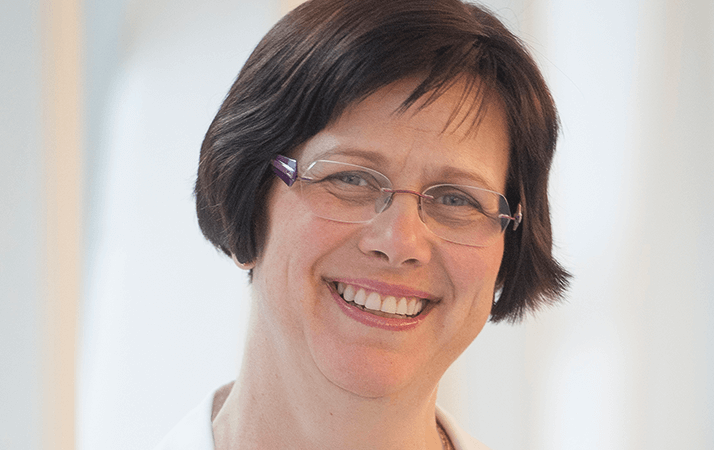
How has ophthalmology changed since your early days? Ophthalmology initially intrigued me because it was a specialty that combined medicine and surgery in a single organ. When I started, vitreoretinal ophthalmology was all about surgery. Meetings featured talks on new surgical techniques or different ways of peeling tissues. But now that’s changed. Now we have many more drug- and even cell-based therapies, and most of the talks at meetings are focused on medical, rather than surgical, treatments for retinal diseases. Not all of my colleagues are happy with that – retinal surgeons like to do surgery – but we are happy to have new solutions for patients with issues like macular degeneration and retinal vein occlusion, whom we couldn’t treat surgically.
How did you come to work on anti-VEGF therapies? I was lucky enough to be able to combine clinical care and research. It was fascinating to look after patients clinically and then think scientifically about the problems we couldn’t solve. The one that interested me most was macular degeneration, because it was so frustrating for both patients and doctors. I worked with Judah Folkman, who pioneered anti-angiogenesis research in cancer and inspired several others to pursue lines of inquiry that dovetailed beautifully: Anthony Adamis, Lloyd Paul Aiello, Patricia D’Amore, Evangelos Gragoudas, and George King, among others. It seemed to us that the same biology involved in cancer angiogenesis might play a role in vision loss, so we started research on animal models of retinal disease. First, we sought to understand what was driving the blood vessel growth, and then we tried to either block the growth or address it – which led to two major projects that resulted in treatments. One of those was photodynamic therapy, which combines a photosensitizing agent with laser light to injure abnormal blood vessels. We figured out the parameters that would work on abnormal retinal blood vessels and ended up with Visudyne, the first pharmacologic therapy for macular degeneration. At the same time, we were trying to understand the causes of retinal angiogenesis, which led us to VEGF – discovering that it was an important mediator for abnormal blood vessel growth in diabetic retinopathy, retinal vein occlusion and macular degeneration, and then developing drugs that would block it. It was very exciting for all of us to build this body of research and take those findings from the laboratory to patients.
We had no idea VEGF would have such an impact. When we started to explore it, nobody believed it could be such an important factor in macular degeneration. We actually had trouble publishing our results at the beginning! The first time we gave an ARVO presentation on VEGF, it was in a tiny room on the last day, and only the authors and their friends attended. But within two years, VEGF had taken off so much that the presentations were in the main room. What’s the next step for retinal disease? We need to work earlier in the disease, and halt progression to the advanced forms. One of my mentors, Ephraim Friedman, chastised me for working at the end-stage disease, but there was a reason for that – it was where the severe vision loss was occurring. I’m working on targeting early macular degeneration by looking at ways to affect the lipid deposition and inflammation that occurs. I’m also very interested in neuroprotection; we’ve just gotten some interesting data suggesting that there may be ways to target retinal – and especially photoreceptor – cell death. There’s an ongoing loss of photoreceptors in macular degeneration, and if we can block that process, we can preserve vision for longer. But I don’t think that benefit is limited to macular degeneration – it can be applied to a number of retinal diseases.
